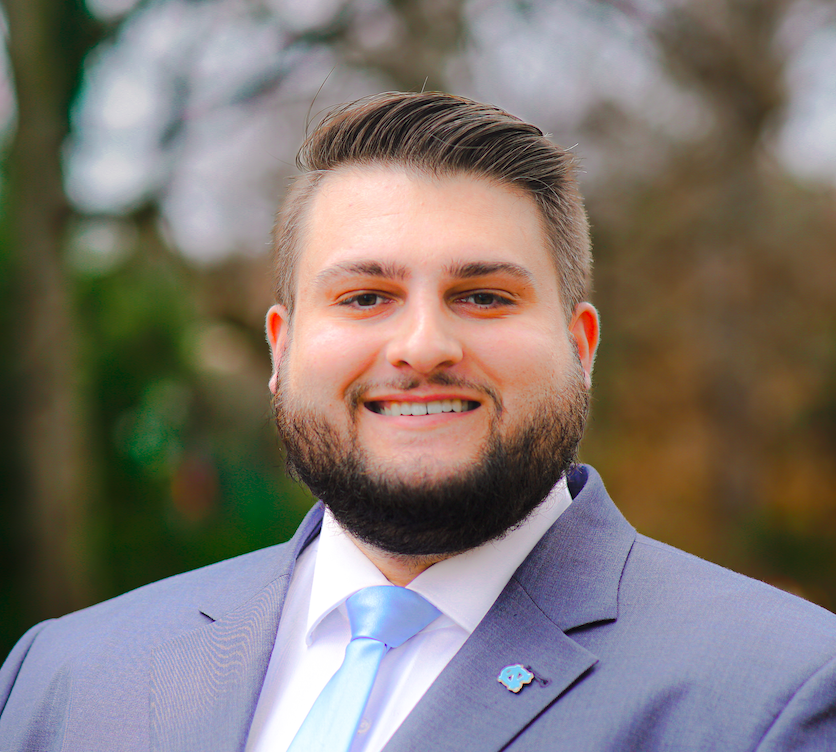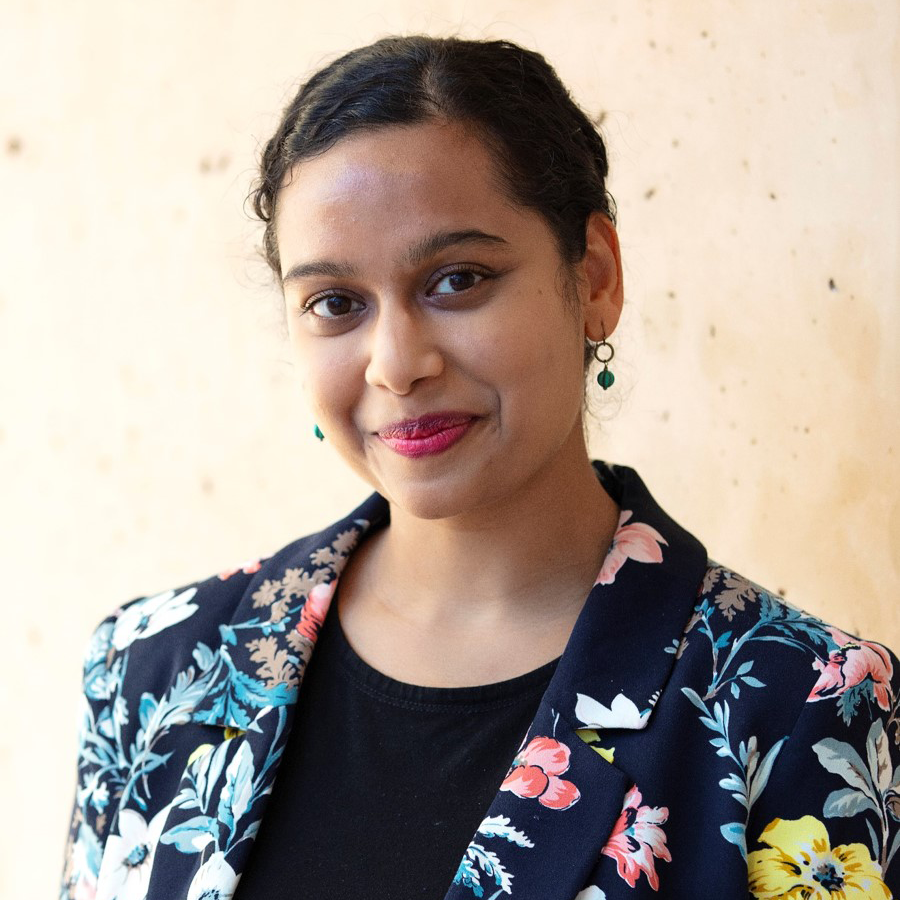Innovation Corps (I-Corps™), a program by the National Science Foundation (NSF), uses experiential education to help researchers gain valuable insight into commercialization. But did you know that the University of North Carolina at Chapel Hill is a select I-Corps partner, part of a larger effort to scale the national innovation network to rapidly advance solutions that benefit society?
The I-Corps program is for anyone at UNC who’s interested in learning more about the market potential for their inventions, regardless if there is a startup company formed. Innovate Carolina spoke with Mike Stepanovic, Pharm.D., M.S., an I-Corps graduate and postdoctoral fellow in Health-System Pharmacy Administration, and Judy Prasad, Ph.D., assistant director of KickStart Venture Services (KickStart), to learn how I-Corps is making an immediate impact on UNC inventions and affiliated startups.
Through I-Corps, Stepanovic worked with UNC startup Assure Technologies, LLC, founded by Stephen Eckel, Pharm.D., M.H.A., an associate professor in the UNC Eshelman School of Pharmacy. The company offers Precynge, a preparation-assist device that connects to a syringe and uses a volumetric process to provide consistently accurate and precise measurements for all drug preparations.
What is the I-Corps program? Why did KickStart bring it to Carolina?
Judy: The I-Corps program was established in 2011 by the National Science Foundation to support their mission for experiential learning, using the customer discovery process to empower researchers to focus beyond the laboratory by leaving their benches and speaking to customers directly. By doing so, I-Corps accelerates economic and societal benefits of NSF-funded and other basic research projects toward commercialization.
We wanted to become part of the I-Corps network of universities because we recognize the value and experience that comes with working with NSF. As part of the network, we can now teach the principles of customer discovery through NSF’s resources, curriculum and structure, and we wanted to provide that guidance to researchers at UNC. The I-Corps program is for anyone at UNC who is interested in learning more about the market potential for their inventions, regardless of if there is a startup company formed.
Mike, how did you discover I-Corps?
Mike: I saw a program that would allow post-graduates to take their innovative ideas or the innovative ideas of the companies they partner with and transform them from an invention to a marketable product, by identifying the impact that invention could potentially have directly from the customer themselves. Oftentimes, as inventors, innovators and academics, we tend to be isolated in our own invention and professions. As a result, we don’t always understand the end customer and how our inventions solve the daily problems they face. Whether you’re an academic, scientist or engineer, I-Corps prepares you to focus beyond the laboratory, beyond the innovation and beyond your profession with the goal of understanding the commercialization process – all through the lens of customer discovery to increase the economic and societal impact of the invention.
Additionally, I saw a program that would allow me to pursue goals I set for myself upon starting my fellowship. One of my many goals was to explore entrepreneurship from a personal level while simultaneously exploring the innovation process within large academic medical centers and academic institutions such as UNC. Innovation in these settings is growing in popularity and is not easy to learn. I can read papers, Google and watch YouTube videos for days, but that only goes so far if I don’t get out there and do the work myself. The I-Corps program gave me the ability to put in the groundwork, learn about customer discovery and then put it into practice.

“ I-Corps prepares you to focus beyond the laboratory, beyond the innovation and beyond your profession with the goal of understanding the commercialization process – all through the lens of customer discovery to increase the economic and societal impact of the invention.”
Mike Stepanovic, I-Corps graduate and postdoctoral fellow in Health-System Pharmacy Administration
What is the I-Corps experience like?
Mike: Coming from a pharmacy and engineering background, it’s been immensely valuable personally and professionally due to my goal of understanding innovation within the academic space but also from growing an entrepreneurship mindset which has allowed me to understand the importance of customer insight and validation in the process of taking an invention from idea to marketable product. I’m not an entrepreneur by training so I-Corps was instrumental in teaching me baseline steps: What do you do during each step of the process? How do you reach out to specific types of customers? What do you do once you reach out? How do you set up an interview? What do you ask during the interview? How do you structure that interview?
Learning this thought process has been really valuable for me. It’s helped me understand customer discovery and how to integrate that process into any innovation I have moving forward. Additionally, it’s allowed me to significantly expand my network here at UNC and across the country with likeminded people that I can collaborate with in the future, which includes co-participants, mentors in the program and interviewees.
Judy: What’s amazing about I-Corps is that it teaches you how to test hypotheses in the setting of customer discovery. So, you don’t enter the program with the assumption that people want and need what you’re developing. Rather, you’re asking them questions based on hypotheses about your customer’s needs and their pains. I have people that approach me and say, “Well, we’re not businesspeople. Should we do I-Corps?” I-Corps is not a program tailored for those with strong business backgrounds. It’s designed for people who know how to test hypotheses and collect unbiased data. A core component of the program is to test hypotheses by asking open-ended questions, and then get answers through conducting customer discovery interviews.
What value does I-Corps offer to startups?
Judy: For startups that participate in I-Corps – and even those who are considering creating a startup – one benefit is that you get hypotheses about your technology validated before you start trying to sell, promote and prototype. You get customer validation without having to sell to a customer.
It’s a way of vetting your technology using an unbiased approach. But the added bonus, as Mike mentioned, is that through these interviews you create a network of people that once the program’s over, you can continue to work with and get input from. And you may never have had that network had you not participated in the program.
Mike: For me, I think it’s taking the innovator – who typically is an academic/researcher and understands the methodology to test a hypothesis in their respective area of expertise – and showing them how to reutilize those research skills in a way that is useful to gaining insight on customers and answering questions that are important for taking an invention and making it into a marketable product. I think the inherent nature of the I-Corps program is where the value lies. It allows you to validate hypotheses about your technology, gain customer validation, and most importantly retrains the thought processes of its participants to do something where – for example – when you go to approach investors, you can speak the language they understand, have deep insight on your potential customers and understand how to answer their questions.
Is there anything about the program that surprised you?
Mike: One of the biggest surprises was how much I learned from my co-participants. I would say I learned just as much, if not more, from watching the other participants take their innovative ideas or partner companies through the customer discovery process. During class, often I would listen to another group and think, that’s a really innovative approach to gather further customer insight; I’ll try that during my next set of interviews. More times than not, having that openness amongst participants and being willing to learn from my co-participants allowed me to dive even deeper into my interviews and get more customer insight than I would have been able to do alone.
The other part that was surprising to me was learning the different customer types you can reach out to for customer discovery and which customer type works best for different types of insight. Through the program we are introduced to the idea of reaching out to warm customers and cold customers based on their familiarity with either the invention, inventor, interviewer, university affiliation or numerous other variables, with warm customers being more familiar with any of these variables and as a result having a higher risk of potentially introducing bias to the discovery process. Through our customer discovery process, we identified the exact nature of the customers who were able to provide the greatest insight to Assure Technologies and we called them “lukewarm,” terminology not previously used in I-Corps. It was surprising to me the different insights gathered from different customer types and how each group identified their ideal customer type based on the hypotheses they were testing.
Judy: Yes, I remember when Mike came up with the lukewarm definition, and I brought it up with the larger group of teams as it was an impressive insight. Overall, there were more than 20 teams across three universities in his cohort (run in January 2023). And Mike got to hear the perspectives of all these teams. I was very glad for this, as bias can sometimes unintentionally be introduced by only speaking to folks that know you because they’re local (i.e., in North Carolina). That bias can be removed if you go outside your comfort zone and start reaching out to people who don’t know you in various geographies. I was really glad that was something he and Stephen (Eckel) benefited from in the program.

“One benefit of I-Corps is that you get hypotheses about your technology validated before you start trying to sell, promote and prototype. You get customer validation without having to sell to a customer. It’s a way of vetting your technology using an unbiased approach.”
Judy Prasad, assistant director of KickStart Venture Services
If someone is unsure about I-Corps, how would you encourage them to apply?
Mike: I would tell them to just do it. There certainly is a time element involved, but the time spent completing the program pays itself over in multiples. It’s intense for a few weeks, but those weeks of intense course work and interviewing have continued to pay off for me based on the baseline customer discovery knowledge learned and the customer discovery information I was able to provide Assure Technologies.
One of my biggest takeaways from this program is the quote said on the first day of class, “you don’t know what you don’t know until you talk to the customer.” Many times, we assume we know a lot about a specific field or customer based on our previous experiences, but through I-Corps you quickly realize until you talk to the customer and get their uncensored or unfiltered opinions you cannot fully gauge their thoughts on a specific innovation, the problems they face, or the use case for an innovation to help solve some of their problems. For example, I spent the past two years doing residency in a hospital during the height of the COVID-19 pandemic spending a lot of time on the floor with nurses, and through that I assumed I knew nurses and their daily problems. However, after doing customer discovery interviews as part of I-Corps, I realized that I was missing an understanding of many parts of daily nursing practice, I didn’t know what kept them up at night, and I didn’t know what their pains and struggles were in the workplace. Through exploring these “unknown unknowns” in customer discovery interviews, it provided me with information that was truly invaluable and is one of the things that allowed me to provide great insight to Assure Technologies.
The last thing I would say is you don’t have to have a company to participate in I-Corps. You can be anywhere in the process from idea inception to a mature company, as Assure Technologies is. Regardless of where you are, customer insight is incredibly valuable for that path to commercialization. I can’t emphasize enough that the earlier you have customer insight, the better your final product will be and ultimately more useful to the customer, which is everyone’s goal at the end of the day.
For more information about I-Corps, visit the program page or submit an interest form.

 | UNC-CH
| UNC-CH




